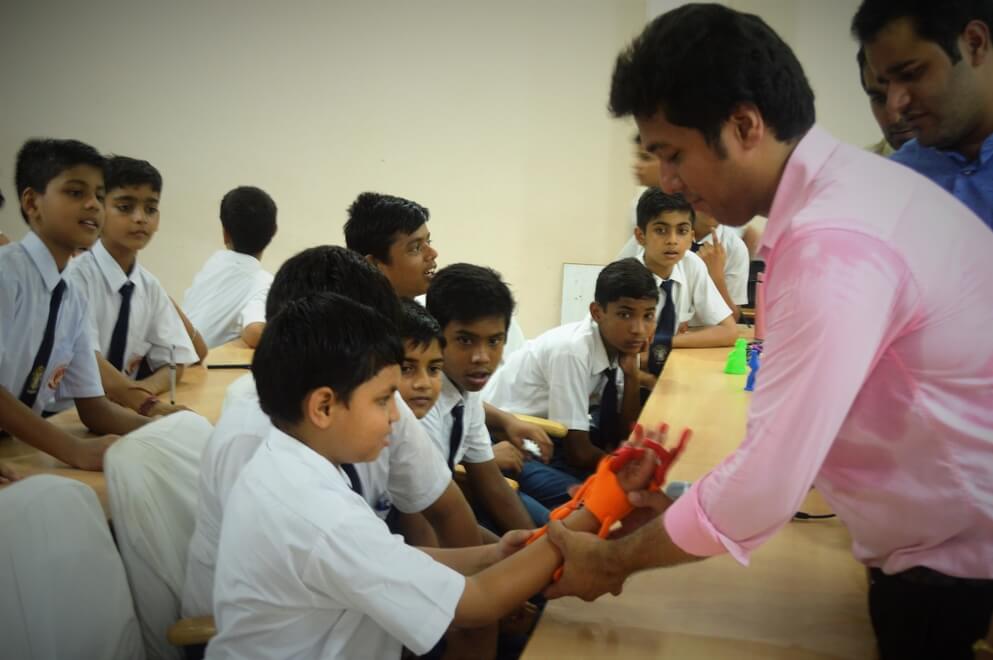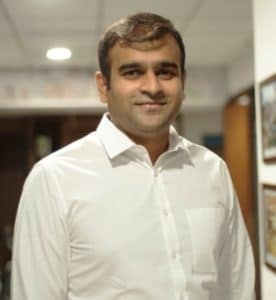
Nowadays, the emphasis is on making learning more student-centric and inspiring them to pursue careers that feed their passion. It becomes possible due to experiential learning, which helped students to gain first-hand experience and identify lessons that are interesting for them, observes Sampreeth Reddy Samala, Founder and CEO, Worldview Education.

Taking down notes written on a board, rote learning and later replicating the same on exam sheets is an old-fashioned method of teaching, especially for school students. These days most teachers are confronting students with shorter attention spans who are unable to concentrate on the lessons being taught in the classroom. Even as over-exposure to technology and digital media are identified as causes for lack of attention in classrooms, an equal amount of blame has to be attached to an outdated mode of information delivery and rigid forms of teaching, which haven’t kept pace with other developments. In the earlier days, information was disseminated to students without paying attention to whether all the students have absorbed the concepts or not.
In their book, Experiential Learning: Experience as the Source of Learning and Development, Keeton and Tate have defined experiential learning as, “Learning in which the learner is directly in touch with the realities being studied. It is contrasted with the learner who only reads about, hears about, talks about, or writes about these realities but never comes into contact with them as part of the learning process.”
In experiential learning, the emphasis is often on direct experiences and in-context action as the primary source of learning. Here, the instructor acts as a guide and helps students to bridge the gap between theory and practical learning. In a broader sense, experiential learning is all about learning through doing; the learner is an active participant in the educational process and not a passive recipient to it.
With experiential learning, the idea is to engage students in critical thinking, problem-solving and decision making in real-world contexts that are personally relevant to them. Students should feel the need to experiment, explore new things, learn in a safe and controlled atmosphere, and gain real-time feedback. This kind of learning will enable them to develop an emotional connection with the subject, leverage real examples for inspiration and enhance their experiences in a manner that leaves them with rich stories to share with their friends and peers.
Presently, a lot of schools and other educational institutions have been welcoming the idea of experiential learning and promoting such programs for the holistic development of students. However, there is an application vacuum, which the students are experiencing. Most of the times, there is a limited focus on the purpose of experiential learning and students do not gain much knowledge through industrial visits or camps.
Experiential learning should be able to incorporate techniques that encourage students to engage in their learning on a multi-sensory level. The whole activity should then prompt reflection, change and action in the form of new skills, attitudes, mindsets or practices. Experiential learning should enable the brain to function in various ways so that each sensory system becomes more developed and supports higher functioning.
Students who are exposed to this form of learning tend to feel more engaged and occupied in their learning process and are able to self-assess themselves with the help of criteria and standards. They are able to share more about their learning experiences, write a reflection report and obtain feedback on their report from an expert/teacher. The high engagement levels enable the students to achieve their goals faster while working in a team.
Experiential learning also allows enhanced collaboration and teamwork among students, right from the beginning. As a result, they learn in a more interactive environment and are able to recall their lessons in a better way. In this process, they also understand the significance of effective communication, learn the nuances of body language, effective listening, understand scripts, etc.
There are several educational institutions encouraging progression and self-motivation in students and are providing experiential learning options in the classroom. Worldview, a person-centric experiential learning platform for the next generation with an overriding focus on transformational leadership, is offering experiential learning programs for middle and high school students. The programmes designed at Worldview- FutureSake, Nature Turks and various Model United Nations engagements- aim to equip the students in developing their personal adaptive capacities, which are at the core of leadership in this fast-changing 21st century. (Views expressed by author are a personal opinion.)






















